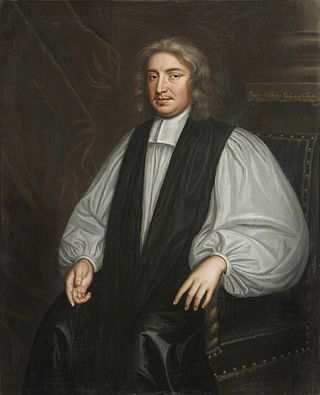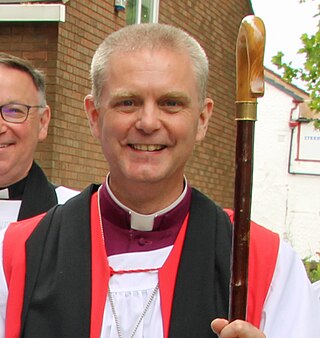Related Research Articles

Harmondsworth is a village in the London Borough of Hillingdon in the county of Greater London with a short border to the south onto London Heathrow Airport and close to the Berkshire county border. The village has no railway stations, but adjoins the M4 motorway and the A4 road. Harmondsworth was in the historic county of Middlesex until 1965. It is an ancient parish that once included the large hamlets of Heathrow, Longford and Sipson. Longford and Sipson have modern signposts and facilities as separate villages, remaining to a degree interdependent such as for schooling. The Great Barn and parish church are medieval buildings in the village. The largest proportion of land in commercial use is related to air transport and hospitality. The village includes public parkland with footpaths and abuts the River Colne and biodiverse land in its Regional Park to the west, once the grazing meadows and woodlands used for hogs of Colnbrook.

John Wilkins was an Anglican clergyman, natural philosopher, and author, and was one of the founders of the Royal Society. He was Bishop of Chester from 1668 until his death.

George Edward Lynch Cotton was the Bishop of Calcutta. He was also an English educator and clergyman, known for his connections with British India and the public school system.

Deusdedit was a medieval Archbishop of Canterbury, the first native-born holder of the see of Canterbury. By birth an Anglo-Saxon, he became archbishop in 655 and held the office for more than nine years until his death, probably from plague. Deusdedit's successor as archbishop was one of his priests at Canterbury. There is some controversy over the exact date of Deusdedit's death, owing to discrepancies in the medieval written work that records his life. Little is known about his episcopate, but he was considered to be a saint after his demise. A saint's life was written after his relics were moved from their original burial place in 1091.
The Regius Professorships of Divinity are amongst the oldest professorships at the University of Oxford and the University of Cambridge. A third chair existed for a period at Trinity College Dublin.

St Lawrence Jewry next Guildhall is a Church of England guild church in the City of London on Gresham Street, next to the Guildhall. It was destroyed in the Great Fire of London in 1666, and rebuilt to the designs of Sir Christopher Wren. It is the official church of the Lord Mayor of London.

Henry William Majendie (1754–1830) was an English Bishop of Chester and Bishop of Bangor.

James Arderne, D.D. (1636–1691), was the dean of Chester from 1682 until his death in 1691.
Thomas Sclater, later Thomas Bacon, was an English lawyer and Tory politician who sat in the House of Commons at various times between 1713 and 1736.
Roger Massey, MA was Archdeacon of Barnstaple from 1791 to 1798.

The Bishop of Chester is the Ordinary of the Church of England Diocese of Chester in the Province of York.
Humphrey Tyndall was an English churchman who became the President of Queens' College, Cambridge, Archdeacon of Stafford, Chancellor of Lichfield Cathedral and Dean of Ely.
Arthur Robert Ward was an English clergyman, cricketer and cricket administrator who played in 12 first-class cricket matches for Cambridge University and amateur sides in the 1850s. He was born at Bloomsbury in London and died at Cambridge.
William Powell was an eighteenth century British Anglican priest.
John Howorth, D.D. was a 17th-century priest and academic.

John Balderston was an academic at the University of Cambridge, master of Emmanuel College and twice vice-chancellor of the university.
Thomas Singleton was an English clergyman and academic.
Peter Birch was an English clergyman who served as Chaplain to the Speaker of the House of Commons and Archdeacon of Westminster.
John Thayne or Thane was an English churchman, Archdeacon of Chester in 1707.
References
- ↑ Horn, Joyce M.; Smith, David M.; Mussett, Patrick (2004), Fasti Ecclesiae Anglicanae 1541–1857, vol. 11, pp. 45–47
- ↑ "Ward, Abel (WRT736A)". A Cambridge Alumni Database. University of Cambridge.
- ↑ s:Alumni Oxonienses: the Members of the University of Oxford, 1715-1886/Ward, Abel
- ↑ "History of the city of Chester, from its foundation to the present time : with an account of its antiquities, curiosities, local customs, and peculiar immunities; and a concise political history" Hemingway, J Chester' J. Fletcher; 1831 p326
- ↑ The Times (London, England), Wednesday, Oct 12, 1785; pg. 1; Issue 249